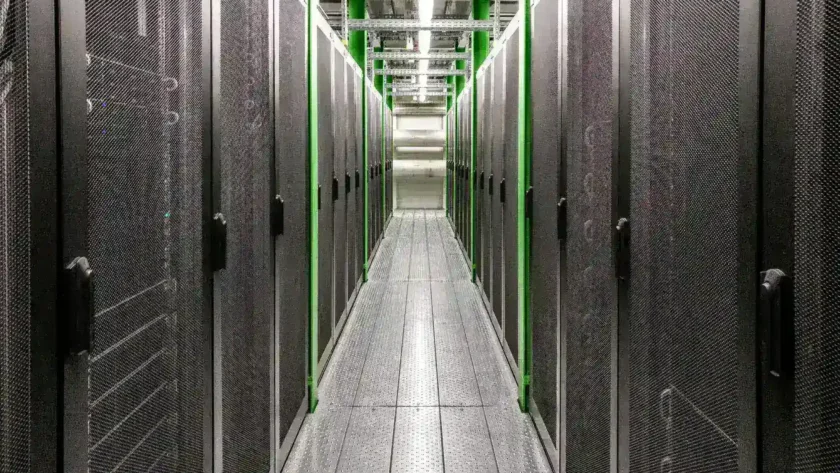Gone are the days of static, outdated data centers. Modernization is key to ensuring infrastructure efficiency, performance, and security in today’s digital landscape. By embracing advanced technologies like virtualization, cloud integration, and software-defined solutions, data centers can optimize resource utilization and reduce costs. This evolution enables organizations to respond swiftly to market demands, streamline operations, and deliver exceptional customer experiences.
Understanding Data Center Modernization
Data center modernization is the process of updating and enhancing the hardware, software, and management practices within a data center to meet the evolving needs of a business. As technology continues to advance, companies require more robust data storage, processing, and management systems to handle the increasing volume and complexity of data. Modernization allows data centers to operate more efficiently, securely, and effectively.
By modernizing data centers, businesses can optimize their infrastructure to improve performance, reduce costs, and increase agility. This includes upgrading servers, storage, and networking equipment, as well as implementing new management practices and security measures. Ultimately, a modernized data center can support current and future business demands while providing a solid foundation for growth and innovation.
чKey Components of Data Center Modernization
Data center modernization involves several crucial components that work together to improve overall efficiency, performance, and adaptability. These key components are essential for creating a modern data center that can handle today’s complex workloads and future technological advancements:
- Upgraded hardware and software: Modernization often begins with updating servers, storage devices, and networking equipment to support new technologies and workloads. Upgrading software and operating systems ensures compatibility and efficiency. Newer hardware can provide improved processing power, memory, and storage capabilities.
- Virtualization and cloud integration: Virtualizing servers and storage allows businesses to optimize resource utilization by running multiple virtual machines on a single physical server. This approach reduces physical hardware requirements and energy consumption. Integrating cloud services offers seamless data storage and access, enabling businesses to scale resources as needed.
- Network and storage optimization: Optimizing network connections and storage systems enhances data transfer speeds and storage capabilities. This includes deploying high-speed networking equipment, such as switches and routers, as well as utilizing advanced storage technologies like solid-state drives (SSDs) and software-defined storage (SDS).
By focusing on these key components, businesses can ensure that their data centers are well-equipped to handle current and future demands, delivering improved performance and operational efficiency.
Strategies for Improving Infrastructure Efficiency
Improving infrastructure efficiency within a data center requires a multifaceted approach. The following table outlines three primary strategies, each with its benefits and examples:
| Strategy | Benefits | Examples |
| Consolidation and resource management | Reduced maintenance costs, better resource utilization | Virtualization of servers, storage, and networking devices |
| Automation and monitoring tools | Consistent performance, proactive issue resolution | Automated backups, performance monitoring tools |
| Efficient cooling and power management | Energy cost savings, increased system reliability | Liquid cooling, optimized power distribution |
These strategies form the foundation of a modernized data center focused on efficiency and performance. Let’s dive deeper into each of these strategies:
- Consolidation and resource management: By consolidating servers, storage, and network devices, businesses can maximize resource utilization while reducing the physical footprint of the data center. Virtualization plays a crucial role in this process, allowing multiple virtual machines to run on a single physical server, leading to decreased hardware and maintenance costs.
- Automation and monitoring tools: Automating routine tasks such as backups, patch management, and resource provisioning can improve efficiency and minimize human error. Monitoring tools track performance and identify potential issues before they escalate, enabling proactive resolution and ensuring optimal data center operation.
- Efficient cooling and power management: Implementing efficient cooling systems such as liquid cooling or hot and cold aisle containment can significantly reduce energy consumption and costs. Optimized power distribution ensures that energy is used efficiently, maintaining system reliability and reducing overall operational expenses.
By adopting these strategies, businesses can create a more efficient data center that meets current demands and is prepared for future growth and challenges.
Benefits of Data Center Modernization
Data center modernization brings a host of advantages to businesses, improving overall operations and positioning them for growth and success. Let’s break down the key benefits into two main areas:
- Cost Savings and Operational Efficiency: Modernizing a data center can lead to significant cost reductions in various areas such as energy consumption, hardware maintenance, and space utilization. By consolidating resources and implementing efficient cooling and power management systems, businesses can decrease operational expenses. Automation and monitoring tools streamline processes and reduce manual intervention, increasing overall efficiency and performance.
- Enhanced Security and Compliance: Modern data centers are designed with robust security features to protect sensitive data and comply with regulatory standards. Implementing advanced security measures such as firewalls, intrusion detection systems, and encryption technologies helps safeguard data and prevent unauthorized access. Additionally, modern data centers often provide improved disaster recovery and backup options, ensuring data is protected and available even in the event of a failure.
By reaping the benefits of cost savings, operational efficiency, enhanced security, and compliance, businesses can achieve a more resilient and agile data center infrastructure. This sets the stage for better performance and the ability to scale and adapt as business needs evolve.
Challenges of Data Center Modernization
While data center modernization offers numerous benefits, it is not without its challenges. One of the primary obstacles is the potential risk associated with upgrading infrastructure, including system downtime and disruptions. These disruptions can impact business operations and services, requiring careful planning and execution to minimize any negative effects on productivity and availability.
Another challenge is the significant investment required for modernization efforts. Upgrading hardware and software, as well as implementing new technologies, can be costly. Additionally, ensuring compatibility and integration with existing systems can be complex and time-consuming. Businesses must weigh these costs against the potential long-term benefits of modernization to make informed decisions about their data center strategies.

